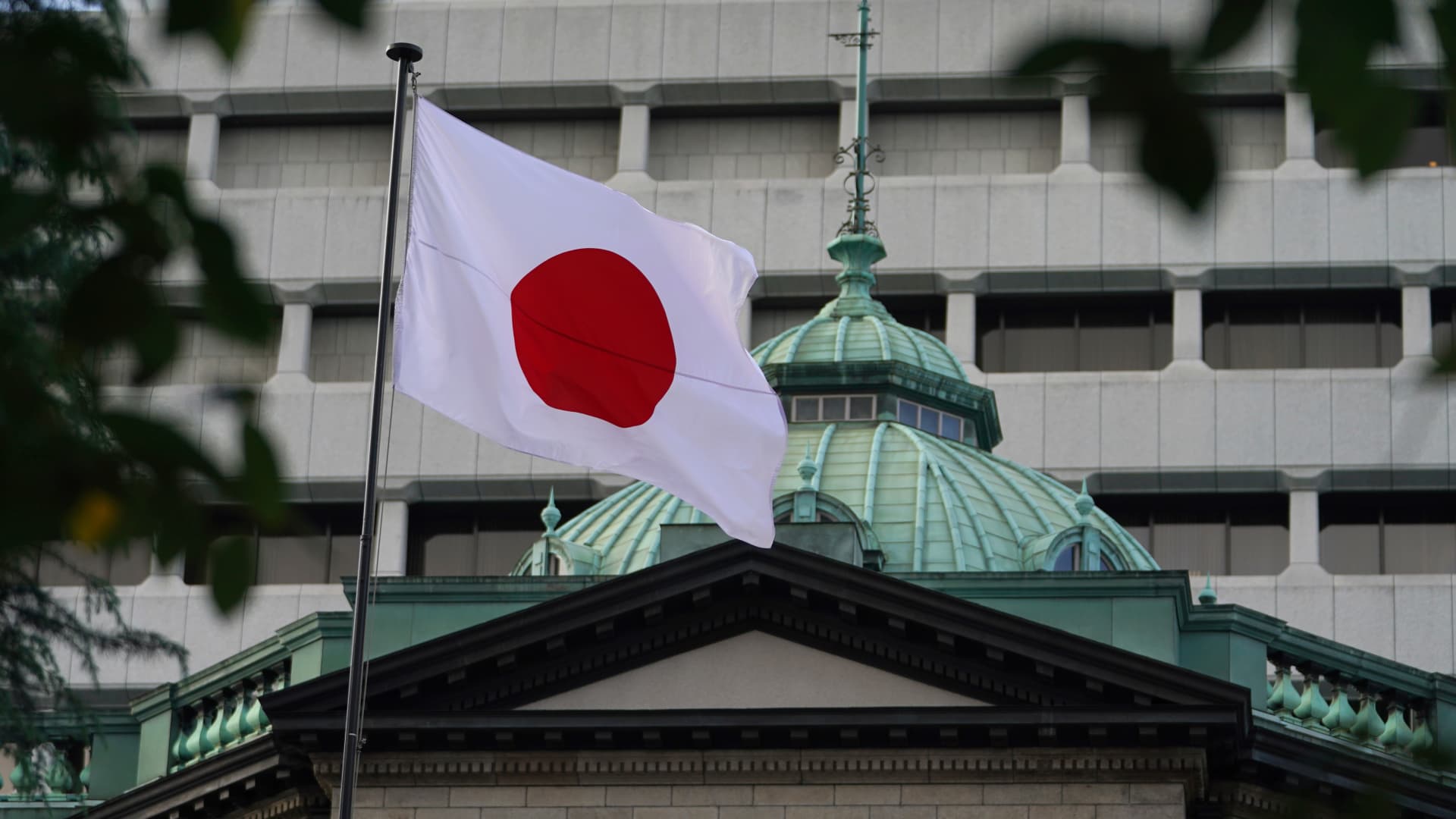
The Bank of Japan may be limited in its ability to deal with recent weakness in the yen, but experts who spoke with CNBC noted the currency is not really the central bank’s main focus anyway.
The Japanese yen went above 130 against the dollar on Thursday after the BOJ reiterated its ultra-easy monetary policy stance, a stark contrast to peers in other developed economies where central banks have expressed concerns over inflation.
As of Friday afternoon during Asia trading hours, the Japanese currency traded at 130.21 per dollar, a sharp weakening from levels near 115 it was trading at against the greenback in early March.
The exchange rate is not in the mandate of Bank of Japan.
Takatoshi Ito
Former Japanese deputy vice minister of finance
The yen has for weeks weakened sharply against the greenback as the monetary policy outlook between Japan and the U.S. continues to diverge.
On Thursday, the Japanese central bank vowed to buy unlimited amounts of bonds daily to defend its yield target.
In contrast, the U.S. Federal Reserve’s leader has affirmed the central bank’s determination to take aggressive action against inflation. The CME FedWatch tool shows markets largely expect a 50-basis-point rate hike in May.
“Many people are talking in that context where the BOJ might be tweaking their … policy framework,” said Kazuo Momma, executive economist at Mizuho Research & Technologies. “I think it is inconceivable or very difficult for the BOJ to do anything about that.”
Firstly, the differential between Japanese and U.S. rates will remain “huge” even if the BOJ decides to “tweak a little bit of the interest rate,” Momma said.
Furthermore, any move in the Bank of Japan’s yield curve control policy could wind up being counterproductive and introduce market speculation regarding the central bank’s next moves, he warned. Yield curve control is a BOJ policy meant to stimulate the country’s economy by keeping the 10-year Japanese government bond yield at around 0%.
“Just one move will be very dangerous step for the BOJ to do so … they’re cautious about sending any message to responding to the market pressure,” Momma said. “They’re going to continue to send a strong signal that they will be staying the same in terms of yield curve control.”
Meanwhile, two experts told CNBC that the Bank of Japan had made the “right move” as its current mandate is to help the economy reach an ever-elusive inflation target.
“The exchange rate is not in the mandate of Bank of Japan,” said Takatoshi Ito, who formerly served as Japan’s deputy vice minister of finance. Concerns about yen weakness should be dealt with by Japan’s finance ministry instead, he said.
“The interest rate yes has a impact on the exchange rate but it has also impact on [capital expenditure] and housing loans, the mortgage and other long-term assets,” said Ito, who is currently a professor of international and public affairs at Columbia University. “It’s a very indirect way to have the impact on the exchange rate.”
Agreeing with Ito, RMB Capital’s Masakazu Hosomi said the Bank of Japan’s current policy stance is in line with its focus of fighting deflation.
Since 2016, the Japanese central bank has adopted negative interest rates in an attempt to reverse decades of deflation through encouraging borrowing and spending. Those efforts have had had limited impact in reaching the BOJ’s 2% inflation goal, preventing it from raising interest rates.
“The biggest issue in Japan has been deflation, not inflation, unlike U.S. and Europe,” said Hosomi, a partner and portfolio manager at the firm.





